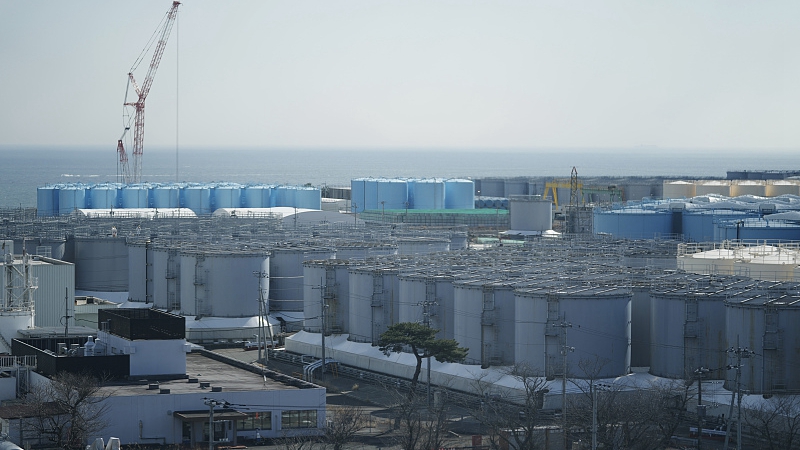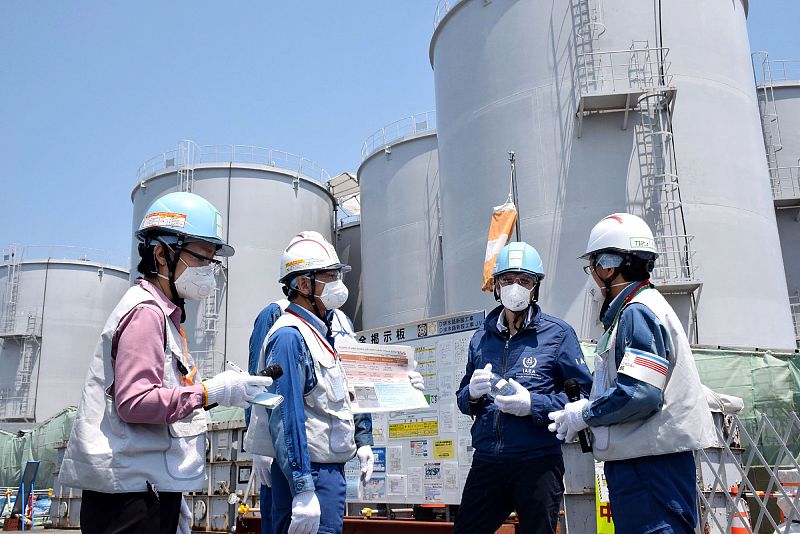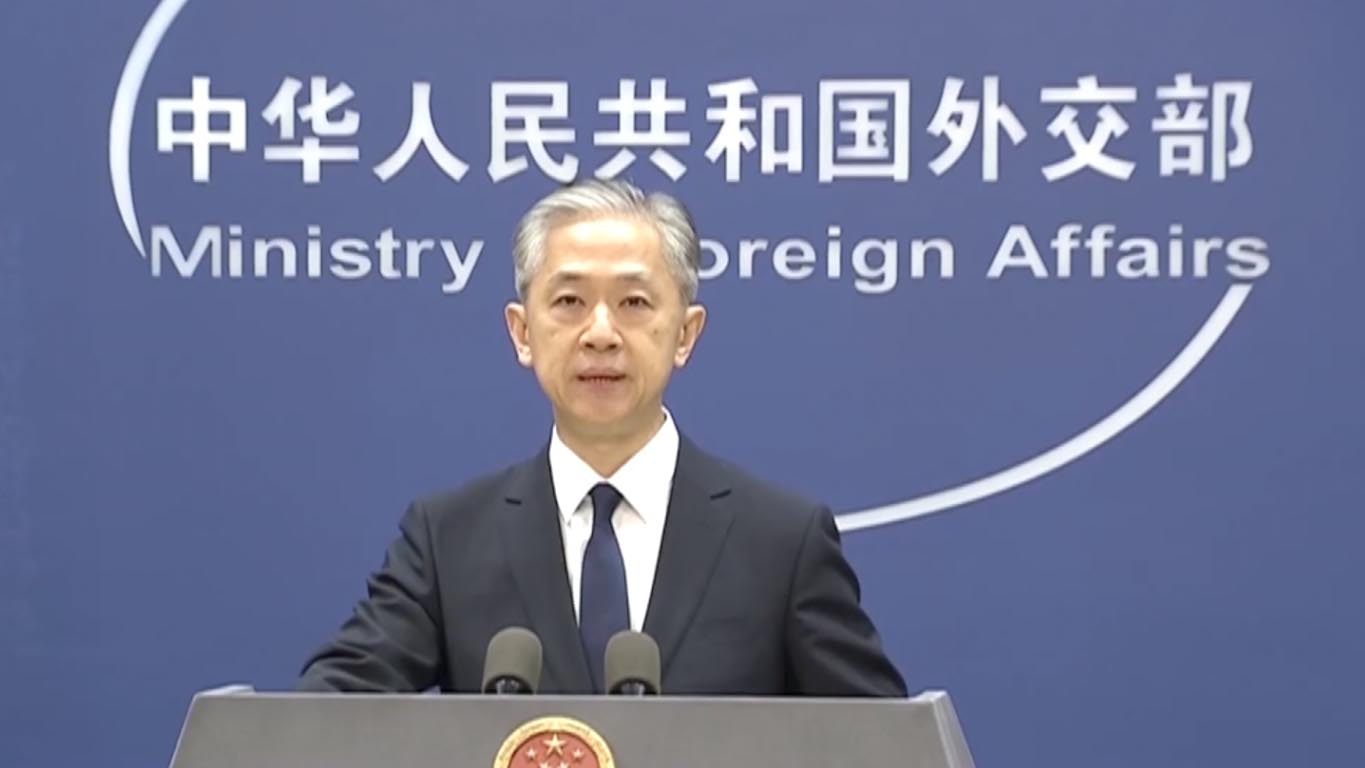
Tanks storing treated radioactive water after it was used to cool the melted fuel are seen at the Fukushima Daiichi nuclear power plant, run by Tokyo Electric Power Company Holdings, in Okuma town, northeastern Japan, March 3, 2022. /CFP
Tanks storing treated radioactive water after it was used to cool the melted fuel are seen at the Fukushima Daiichi nuclear power plant, run by Tokyo Electric Power Company Holdings, in Okuma town, northeastern Japan, March 3, 2022. /CFP
The Nuclear Regulation Authority (NRA) of Japan on Friday officially approved the Tokyo Electric Power Company (TEPCO)'s discharge plan for the treated Fukushima nuclear accident contaminated water.
The water, used to cool reactors in the aftermath of the 2011 nuclear disaster, is being stored in huge tanks in the plant, and amounted to more than 1.3 million tonnes by July.
The regulators deemed it safe to release the water, which will still contain traces of tritium after treatment, the foreign ministry said in a statement.
Plant operator Tokyo Electric Power Company (TEPCO) will face additional inspections by regulators, it added.
TEPCO plans to filter the contaminated water to remove harmful isotopes apart from tritium, which is hard to remove.
Then it will be diluted and released to free up plant space and allow decommissioning to continue.

Director General of the International Atomic Energy Agency (IAEA) Rafael Grossi (2nd-R) stands in front of the storage tanks for radioactive water as he visits the Tokyo Electric Power Company Holdings Fukushima Daiichi nuclear power plant in Okuma, Fukushima prefecture, Japan, May 19, 2022. /CFP
Director General of the International Atomic Energy Agency (IAEA) Rafael Grossi (2nd-R) stands in front of the storage tanks for radioactive water as he visits the Tokyo Electric Power Company Holdings Fukushima Daiichi nuclear power plant in Okuma, Fukushima prefecture, Japan, May 19, 2022. /CFP
The plan has encountered stiff resistance from fishing unions in the region which fear its impact on their livelihoods.
Neighbors China and South Korea have also voiced concern.
00:42

"It's extremely irresponsible for Japan to discard other parties' concerns and attempt to make it an established fact. We firmly oppose it," said Wang Wenbin, a spokesperson of China's foreign ministry. "The disposal of Fukishima's nuclear wastewater concerns the global oceanic environment and the public health of countries around the Pacific Ocean.
"It's absolutely not Japan's own business. China urges Japan to fulfill it due international obligations," he added.
Wang urged the Japanese side to dispose of the nuclear wastewater in a scientific, open, transparent and safe way and stop forcefully advancing its plan.
The spokesperson reiterated that Japan must not start releasing nuclear wastewater into the ocean without complete consultations and agreements with relevant parties and international organizations.
Japan will definitely pay a price for the irresponsible act and leave a stain in history, if it is bent on putting its own selfish interests before the international public interest and taking this dangerous step forward, Wang added.

